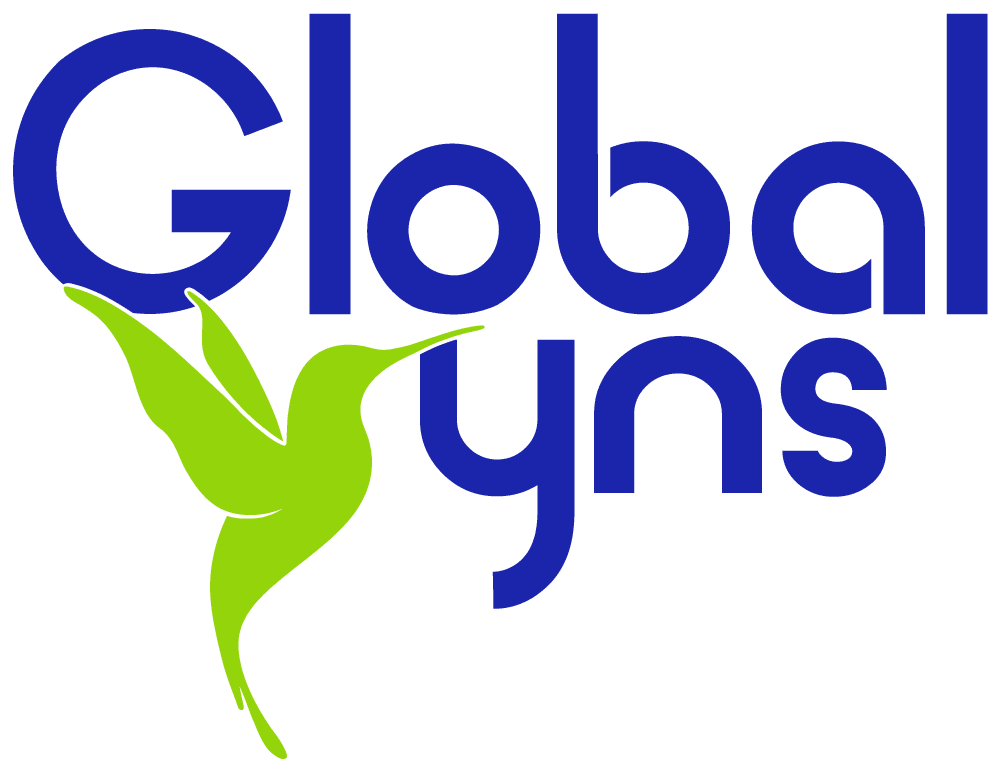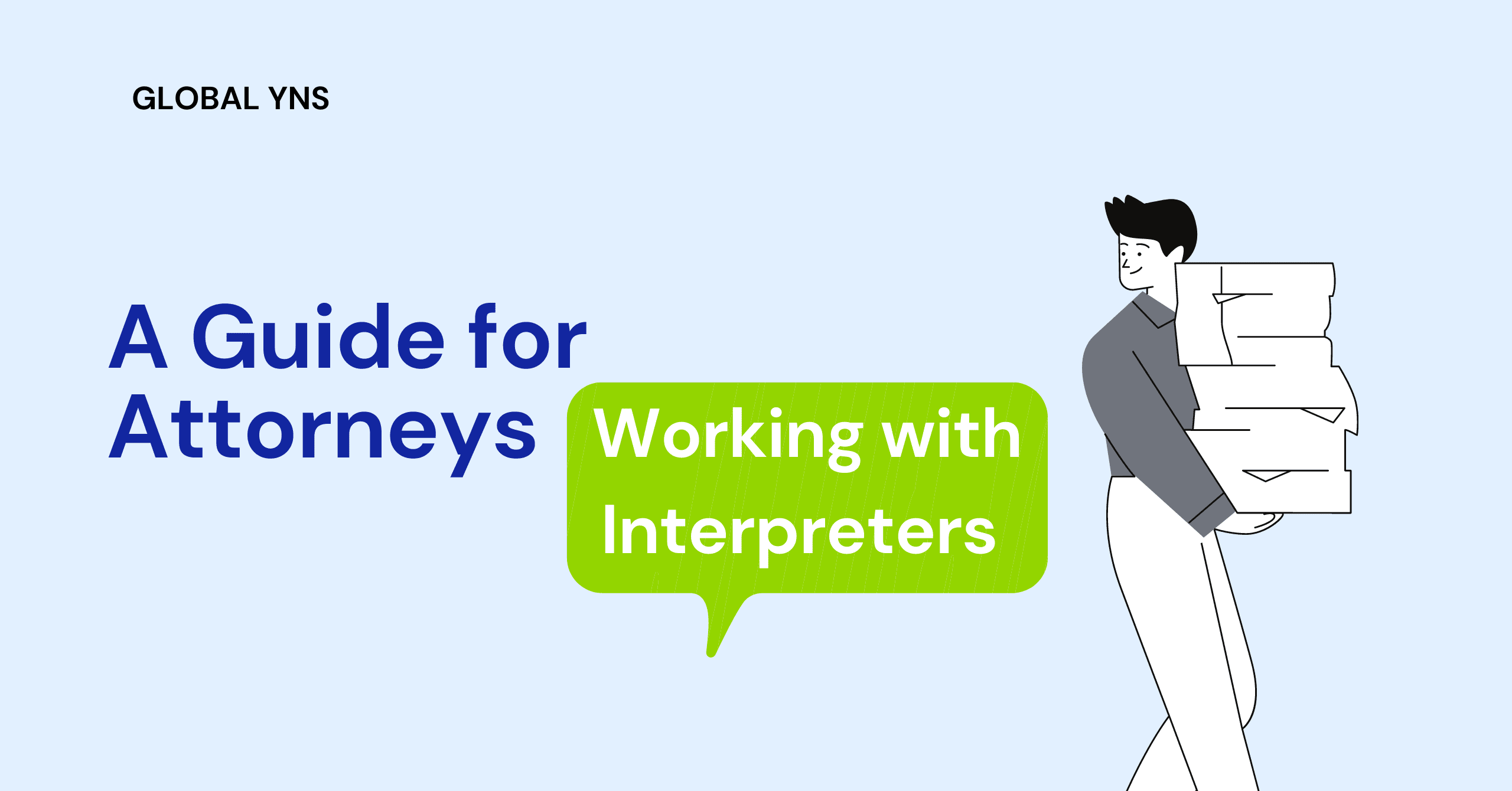You won’t find a more experienced team of legal translators and interpreters anywhere else. Global YNS has developed unique expertise serving legal firms, law school clinics, and pro bono resource centers. In addition, we offer certified document translation services, professional interpretation services, ASL interpreting services, and more language services tailored to legal practitioners.
Working with Legal Interpreters and Translators
Our legal translators and court interpreters can overcome language barriers. They assist legal practitioners with their depositions, immigration cases, worker’s compensation cases, attorney-client meetings, asylum & naturalization interviews, mediation, and settlement conferences. Our legal interpreters are available in person and remotely. The following tips can improve accuracy and ensure compliance with the attorney’s ethical duties. Global YNS’ legal and court interpreters follow the following guidelines.
Always Schedule a Pre-Session with your Interpreter
A pre-session is the most important part of the interpretation encounter. It is a meeting for the legal interpreter and attorney to review ground rules, position chairs, review relevant terms or documents, review the interpreter’s qualifications, sign a confidentiality agreement or NDAs and discuss terminology. Legal interpreters interpret, plain and simple. They don’t offer personal opinions, explain legal matters to LEP (limited English proficient) or deaf persons, clarify cultural nuances to attorneys, or assist LEP or deaf persons to fill out legal forms.
Share References Materials and Documents to Interpreters ahead of Time
If you plan to ask the interpreter to sight translate any documents during the session, or have any documents that summarize the issue that will be discussed during the session, provide them to the interpreter in advance so that s/he can review the document and research any unfamiliar terms before the session. Do not expect interpreters to sight translate long or highly technical documents; rather, plan to summarize them orally for the client and have the interpreter interpret your summary.
Position the Interpreter Accordingly. You Should Face Your Client
Legal interpreters should be to one side of the client, potentially a little behind (for spoken language interpreters only; ASL or Deaf interpreters will need to be able to clearly see all parties). This positioning emphasizes the key relationship: lawyer-client. It puts the interpreter in the background. Direct your comments and questions to the LEP or deaf person, not to the interpreter. Interpreters are trained to interpret exactly what you say. If you say to the interpreter “Ask him whether he can pay the fine?” The interpreter may likely interpret that literally, which results in confusion. Instead please say to the LEP or deaf person “Can you pay the fine?”
Do Not Leave the Interpreter Alone With Your Client
It takes three to interpret. Do not leave the interpreter alone with your client. Meet with the interpreter in your office, then together you can greet the client. This ensures that the interpreter is not left alone with the client. Equally important, interpreters cannot call your clients on their own, you need to arrange for a 3-way call and talk to the client.
Check For Understanding
The attorney is always responsible for making sure that the client understands the information and questions. Do not ask the interpreter if the client understands, ask the client. If you ask a client, “Did you understand?” never assume that a nod or a smile (or even saying “yes”) means that they understood. You may need to explain legalese and acronyms, and to simplify references to case law, rules, and statutes as you speak with your LEP client.
Speak Slowly and Use Short Sentences
Ensure that everyone speaks one at a time. Interpreters cannot interpret for more than one person at a time. If an interpreter is interpreting consecutively (interpreting after you have completed speaking), stop after each complete idea. Do not speak continuously for a long time; pause frequently to allow time for interpretation. Watch to see that the interpreter has finished before beginning to speak again. If an interpreter is interpreting simultaneously (interpreting while you are speaking), make sure to allow pauses in between speakers. Pauses are crucial because most languages require more syllables to convey the same idea, and because word order varies from language to language. Interpreters are several words behind the speaker and need the pauses in between utterances in order to keep up.
Give Interpreters a Break
An interpreter is the only person who is speaking nonstop during court hearings or client meetings. Give interpreters breaks every 20 – 30 minutes to rest, offer a glass of water, and ensure that they can comfortably see and hear all speakers in the room. Remember that private discussions between the client and attorney may be a break for the court, but not for the interpreter.
Debrief With Your Interpreter
Examine how the session could have been improved. Give the interpreter the opportunity to explain any issues that may have come up in the session. Familiarize yourself with the role of interpreters to avoid misunderstandings. Supreme Court General Rule 11.2 requires court interpreters to interpret all communications accurately without adding or omitting anything. When you speak in formal, eloquent words, the interpreter will use the linguistic equivalent. If your client swears or answers in a nonsensical way, an accurate interpretation means that you will hear a swearing or a nonsensical answer in English.
Use GLOBAL YNS' Interpreters to Communicate with your Clients
Our linguists are court-certified, registered, and professional interpreters. Like attorneys, court certified and registered interpreters have proven their skills through testing and training, are required to comply with continuing education, and are held to ethical standards. Similarly, the Registry of Interpreters for the Deaf (RID) administers a rigorous legal certification exam. Remember your case rests on good communication and communication rests on good interpretation. We’re proud of the expertise that we have developed over the years. We are the best language solution for law firms handling foreign immigration cases, needing certified document translation services, or expanding their business into a new market with new legal requirements.
Global YNS
Offering Superior Language Solutions,
Where Quality Is Our Priority

